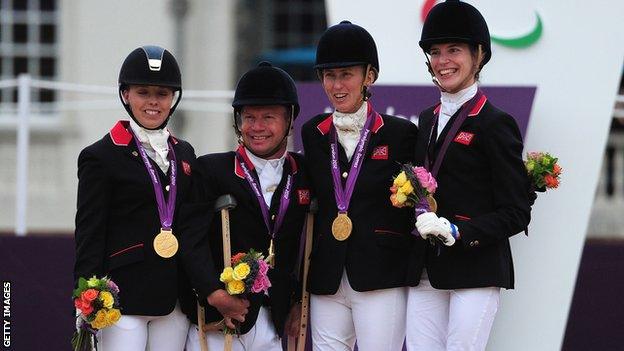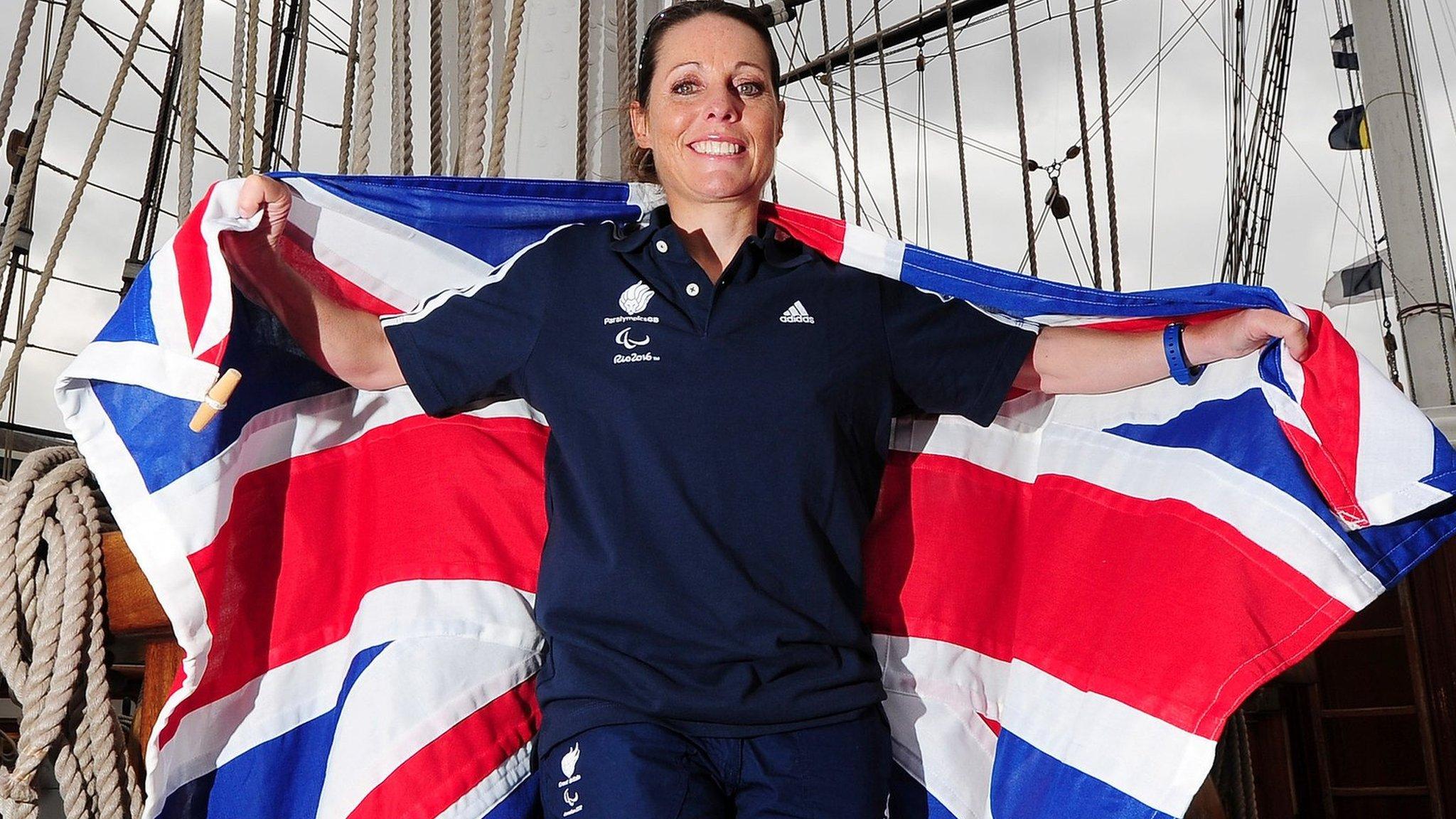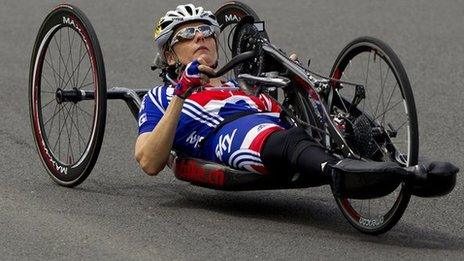Equestrian at the Rio 2016 Paralympics: All you need to know
- Published
Paralympic Games on the BBC |
|---|
Venue: Rio de Janeiro, Brazil Dates: 7-18 September Time in Rio: BST -4 |
Coverage: Follow on Radio 5 live and via live text commentary. |

Great Britain's equestrian team won five Paralympic medals at London 2012
How does it work?
Equestrian events at the Paralympics consist solely of dressage competition, with riders divided into five grades: Ia, Ib, II, III and IV - with Ia and Ib for the most-impaired riders up to IV for the least-impaired.
Men and women compete against each other equally within their specific grades, with riders taking part on their own horses.
All riders compete in three dressage tests: a team test, an individual championship test and a freestyle test (where athletes choose their own routine and set it to their own choice of music).
Three or four riders make up a team. An additional fifth rider can take part in the team event as an individual, although that person's score will not be added to their team's.
The results of the team and individual championship tests are added together to arrive at the overall team score, with the best three scores (from a team of four) counting. Individual medals are also awarded in both the individual championship test and the freestyle test.
All riders, whether competing in a team or not, may ride in the team test.
Athlete classification is according to functional ability when mounted and determines the complexity of the movements riders perform with their horses during their tests.
Riders may use permitted assistive devices while visually impaired riders are permitted to use 'callers' to help them navigate around the arena.
Who are the British medal hopes?
Britain has led the way since the sport made its Paralympic debut in Atlanta in 1996, winning five golds at London 2012, including three for Sophie Christiansen. Lee Pearson has 10 Paralympic golds to his name and will be hoping to add to his tally in Rio.
Who are the other medal challengers?
Austria's Pepo Puch took part in the eventing competition for Croatia at the 2004 Olympics but four years later he had a riding accident which left him with a severed spinal cord.
He made his Paralympic debut in London representing Austria, beating Pearson to gold in the Grade Ib freestyle event and also winning bronze in the Ib individual test to become the first rider from his nation to reach the podium at a Paralympics.
Since then, Puch and Pearson have had a keen rivalry. Pearson was victorious at the 2014 World Equestrian Games but Puch claimed top honours at last year's Europeans.
Did you know?
Great Britain rider Sophie Christiansen has a Masters degree in mathematics from Royal Holloway University and combines her training with working part-time for financial firm Goldman Sachs.
ParalympicsGB London 2012 medals
11 (Team gold - Sophie Christiansen, Deb Criddle, Sophie Wells & Lee Pearson; Individual gold - Christiansen (two), Natasha Baker (two); Individual silver - Criddle (two), Wells (two), Pearson; Individual bronze - Pearson.
- Published23 August 2016

- Published5 September 2016
